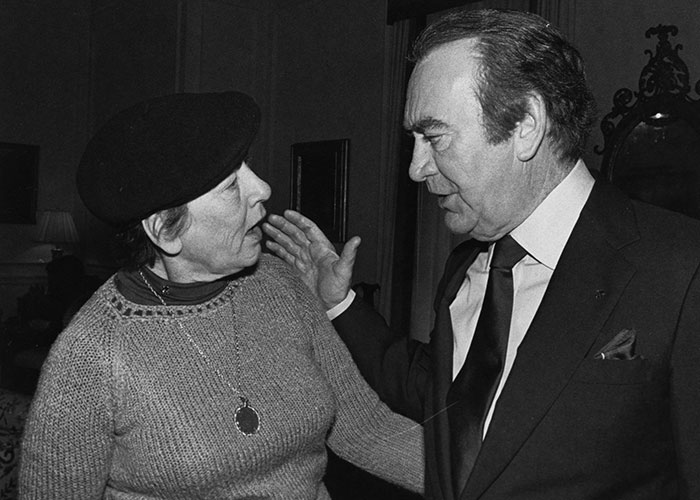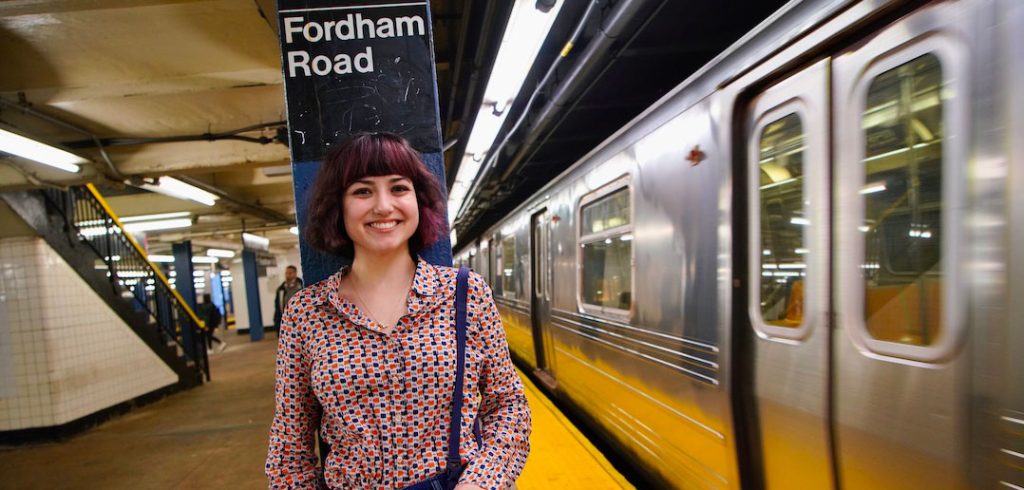Take Frances Berko, for example. A pioneer in the disability rights movement, she earned a Fordham Law degree in 1944. By 1949, Berko, who had ataxic cerebral palsy, helped start United Cerebral Palsy. She later served as New York state’s advocate for the disabled.

“I’ve had much success,” she told a panel of legislators in 1981. “But the one achievement which I held most precious—for which I’ve most constantly striven—I’ve never been able to attain completely: that is, the full rights of a citizen of this country and this state.”
That achievement came in 1990 with the signing of the Americans with Disabilities Act. In 1994, two years before Berko died, Fordham awarded her an honorary doctorate, and Janet Reno, then U.S. attorney general, called her “a symbol to me of what you can do and how you can do it magnificently.”
Today at Fordham, Berko’s spirit is evident in the work of senior Abigail Dziura, who has focused her research on improving the New York City subway system, where only 27% of all stations are considered fully accessible to people with disabilities.
In April, she earned a prestigious Harry S. Truman Scholarship, which recognizes college students dedicated to public service. “One of the hardest parts of advocacy work is knowing that you don’t always get to see the end result,” she told Fordham News. “Sometimes you’re setting things up for future generations because something can’t be completed for another 20 years. … But someday, I’d love to see a fully accessible New York subway system.”
The ever-striving, regenerative spirit that links Berko to Dziura and beyond is just one example of Fordham people working to build stronger communities. You’ll find more in our latest “20 in Their 20s” series.

